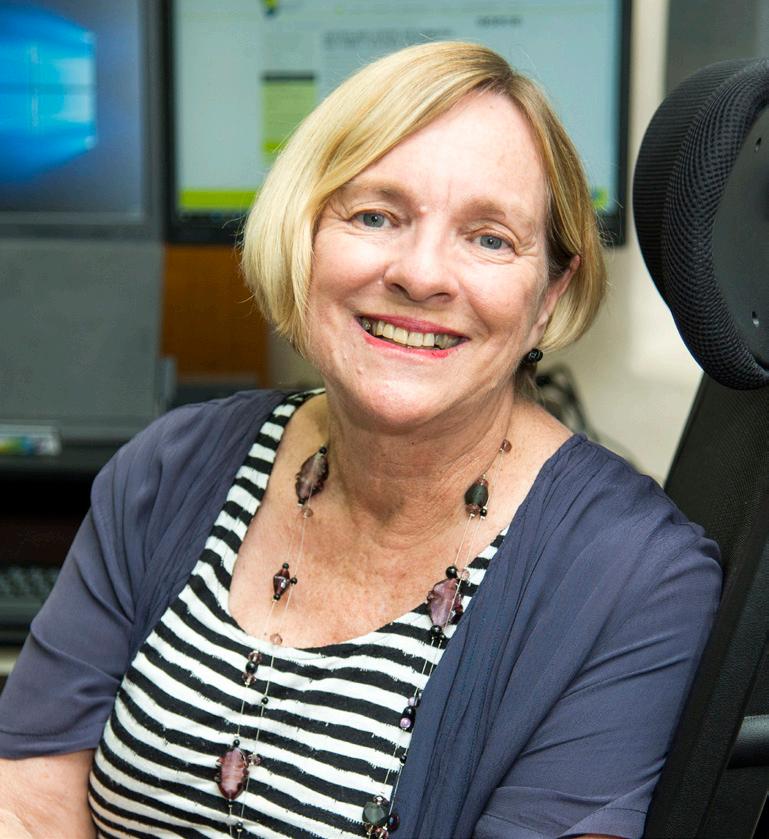
2 minute read
Director's Report
by QCDFVR
Director’s Report

Advertisement
The past three months have been action packed as usual, with seven evaluative studies (national, state and local) underway. Additional research includes examining contemporary practice approaches to women who use force and, on a very different note, exploring service models for working with mental health for children impacted by domestic and family violence.
As previously advised the Centre is also undertaking research and sector development support in relation to sexual assault, and with October being Sexual Violence Awareness Month this issue is loosely themed around this complex phenomenon. Across the Queensland Government a range of commitments is contributing towards sexual violence prevention and response. This includes the Centre’s recent two-year evaluation of the Townsville Sexual Assault Response Team (SART) Trial, a North Queensland initiative that has helped inform Queensland Health’s latest sexual assault Directive and Guideline. These two documents reflect the importance of agencies working together, a principle which is applicable across geographical contexts, and discussed in a research summary drawn from the United States (page 03). Not only are advocates key in multi-agency responses to victims of sexual violence, but police are critical frontline responders and essential, too, in interagency efforts. The importance of police adopting trauma-informed approaches to sexual violence is also emphasised in a recent American article, summarised on page 05. A population sometimes overlooked when considering victims of sexual assault in older people. The Royal Commission into Aged Care Quality and Safety has contributed to increasing awareness of elder sexual abuse, as does the article provided by Di Macleod (Director, Gold Coast Centre Against Sexual Violence Inc.) on page 07. Women with a disability are also particularly vulnerable to sexual assault and WWILD is a specialist service working with this population. You can learn more from Leona Berrie, the Manager of WWILD, on page 09 where she shares updates about emerging trends and advice for other service providers to consider when working with victim/survivors who have a disability. We are exceptionally proud of our efforts in education and training; an area of emphasis over the past few years. Building the capacity of those currently working, or aspiring
to work, in responding to gendered violence complements our sector development activity on many levels. On page 11 we share a student’s experience of completing her CQUniversity Graduate Diploma of Domestic and Family Violence Practice. One of our Senior Lecturers, Dr Brian Sullivan has contributed a thought-provoking conversational piece on page 13 around ‘time outs’ in group programs for men who have perpetrated violence. I say ‘one of our Senior Lecturers’, as once again we have two on staff: Dr Emily Hurren-Paterson joined us in July on the departure of Dr Andrew Frost. This brings our postgraduate full-time teaching staff to four, with sessional lecturers/markers also providing support, and our Associate Lecturers ably conducting vocational and other training. Although it seems like only yesterday that we held the 2019 Indigenous Family Violence Forum, planning for next year is up and running. The date claimer is available, so please mark your calendars! Our valued community presentations will feature again in 2020, so if you know someone who could contribute, the Expression of Interest process is now open. Mr Les Stewart, a faithful Forum attendee over the years, has painted the wonderful logo for next year’s event. I was moved to read his story of the art, and its relationship to our Forum. It is indeed humbling to know that the intent of the Forum, planned with our valued Aboriginal and Torres Strait Islander partners each year, is being met.

Dr Heather Lovatt Director Queensland Centre for Domestic and Family Violence Research


